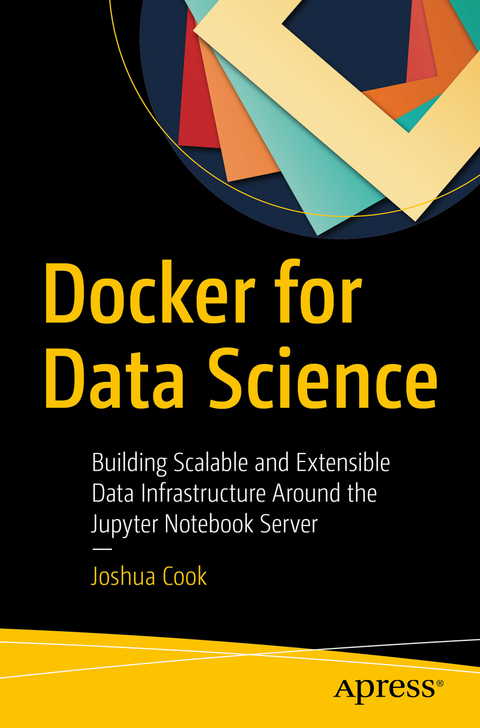
Docker for Data Science
Apress (Verlag)
978-1-4842-3011-4 (ISBN)
- Teaches Docker principles with practical examples
- Covers high-performance interactive computing with Jupyter
- Presents a unique development method geared toward interactive computing
Learn Docker infrastructure as code technology to define a system for performing standard but non-trivial data tasks on medium- to large-scale data sets, using Jupyter as the master controller.
It is not uncommon for a real-world data set to fail to be easily managed. The set may not fit well into access memory or may require prohibitively long processing. These are significant challenges to skilled software engineers and they can render the standard Jupyter system unusable.
As a solution to this problem, Docker for Data Science proposes using Docker. You will learn how to use existing pre-compiled public images created by the major open-source technologies—Python, Jupyter, Postgres—as well as using the Dockerfile to extend these images to suit your specific purposes.
The Docker-Compose technology is examined and you will learn how it can be used to build a linked system with Python churning data behind the scenes and Jupyter managing these background tasks.
Best practices in using existing images are explored as well as developing your own images to deploy state-of-the-art machine learning and optimization algorithms.
- Master interactive development using the Jupyter platform
- Run and build Docker containers from scratch and from publicly available open-source images
- Write infrastructure as code using the docker-compose tool and its docker-compose.yml file type
- Deploy a multi-service data science application across a cloud-based system
This book is for data scientists, machine learning engineers, artificial intelligence researchers, Kagglers, and software developers.
Joshua Cook is a mathematician. He writes code in Bash, C, and Python and has done pure and applied computational work in geo-spatial predictive modeling, quantum mechanics, semantic search, and artificial intelligence. He also has 10 years experience teaching mathematics at the secondary and post-secondary level. His research interests lie in high-performance computing, interactive computing, feature extraction, and reinforcement learning. He is always willing to discuss orthogonality or to explain why Fortran is the language of the future over a warm or cold beverage.
1. Introduction
2. Docker
3. Jupyter
4. Docker Client
5. The Dockerfile
6. Docker Hub
7. The Opinionated Jupyter Stacks
8. The Data Stores
9. Docker Compose
10. Interactive Development
| Erscheinungsdatum | 09.09.2017 |
|---|---|
| Zusatzinfo | 76 Illustrations, color; 21 Illustrations, black and white |
| Verlagsort | Berkley |
| Sprache | englisch |
| Maße | 155 x 235 mm |
| Gewicht | 434 g |
| Einbandart | kartoniert |
| Themenwelt | Mathematik / Informatik ► Informatik ► Datenbanken |
| Mathematik / Informatik ► Informatik ► Netzwerke | |
| Mathematik / Informatik ► Informatik ► Programmiersprachen / -werkzeuge | |
| Mathematik / Informatik ► Informatik ► Software Entwicklung | |
| Informatik ► Theorie / Studium ► Künstliche Intelligenz / Robotik | |
| Schlagworte | Docker • Docker Engine • Docker File • Docker Machine • Juypter • Juypter Docker Stacks • Kaggle |
| ISBN-10 | 1-4842-3011-6 / 1484230116 |
| ISBN-13 | 978-1-4842-3011-4 / 9781484230114 |
| Zustand | Neuware |
| Informationen gemäß Produktsicherheitsverordnung (GPSR) | |
| Haben Sie eine Frage zum Produkt? |
aus dem Bereich


